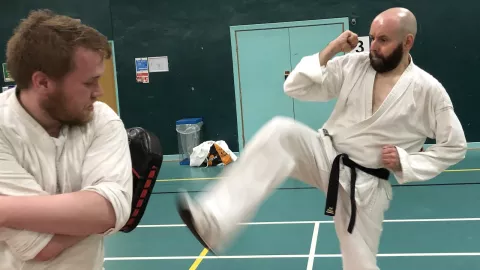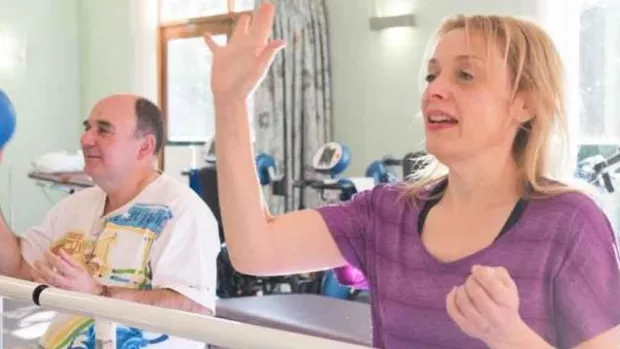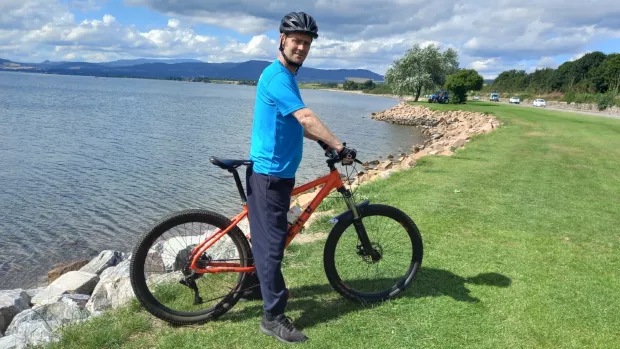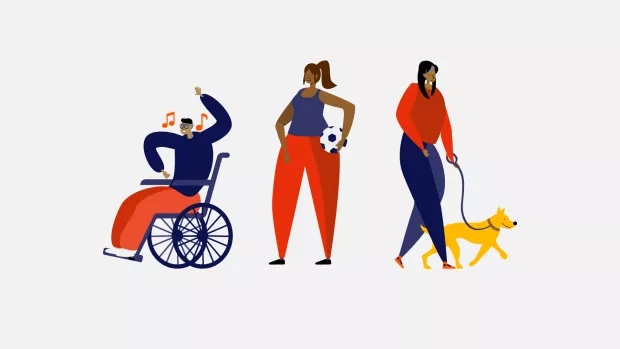
"I feared I'd have to give up my active lifestyle"
I’m Scott Burgess, and in the summer of 2018 I was diagnosed with MS. At the time, my interests mostly involved physical activity. Martial arts, running, hillwalking, and going to the gym - I liked to stay active. After diagnosis, would I have to give up such a large part of my life?
I’d delayed taking up a martial arts for a while until I eventually took the plunge in 2007. I joined Bearsden Martial Arts Club, in the town of Bearsden, about six miles north-west of Glasgow city centre.
I was hooked instantly, getting my black belt in 2016. By 2018, I was training twice a week and preparing to grade for my second dan black belt (there are 10 dan grades).
An unexpected attack
One morning, I got out of bed and I couldn’t stand up properly. My balance just didn’t feel right. I saw my doctor a few days later, fully expecting to be told I’d injured my back, to give it a few days and I’d be fine. Something quite different happened.
I spent five weeks in Glasgow’s Queen Elizabeth University hospital and, many tests later, I was discharged with a diagnosis of probable MS.
Getting back on my feet
While in hospital my balance was still off so I turned to a karate practice. Kata is common to many styles of karate and similar concepts exist in other martial arts. Think of it as sequences that simulate self-defence. Or, if you like, ‘karate dancing’.
Kata’s good for developing balance, coordination and focus. It helped me regain my balance, but it took about three weeks before I could do the first kata completely. We have 32 katas and can normally teach the first one to club newcomers on their first night.
Diagnosis hit me hard. That happens to everyone, doesn’t it? I’ve since learned that many people can have several symptoms that eventually lead to diagnosis. I didn’t have that. I'd had no early signs. And there wasn’t a particular type of MS mentioned, only that it was “an unusual presentation”. I had an uncertain diagnosis of an unpredictable condition.
Unsurprisingly, I struggled to come to terms with diagnosis, wondering if my training days were over.
Read more about being newly diagnosed here
A green light to train
The MS Society’s website describes the benefits of exercise for people with MS, and it’s all very sound, sensible advice. However, what motivated me to continue was an appointment with an MS specialist physiotherapist.
After the physio checked my gait and balance, I described my martial arts practice. The physio then said “I can’t give you any exercises that will be better than that.” That was, and still is, my green light to keep training.
I returned to my club, tentatively at first. I had no idea if I had mild MS, severe MS or something in between. Gradually I’ve built back to two, sometimes three, nights a week.
My main MS symptoms are pins and needles in my left leg and back. My left leg and foot feel slow and don’t have the same bounce or flexibility as before. I’ve had to adapt my training as a result. There are some kicks I can’t do very well now, so I have to find alternatives. Some katas involve jumps, which I have to modify as I can’t spring off my left leg.
Read more about MS signs and symptoms here
Fighting back
I was frustrated at first, then I had a lightbulb moment. If I could still do 80% of my pre-MS training that was a lot better than nothing at all. I could still get all the benefits, while recognising these new limitations.
Training continues to help my balance and focus. We learn how to fall safely, which may come in handy if my MS progresses. I’ve taken one face-first fall on the pavement. Breaking my fall properly resulted in me scuffing my palms rather than breaking my nose or teeth. Obviously falling like that on a pavement is a lot less fun than on a padded mat.
Perhaps even more than the physical benefits, I find training really helps my mental health.
Hitting back at MS
Martial arts are a great way relieve stress. I work full-time at Revive MS Support in Glasgow and, after a busy day, nothing beats hitting pads (and people) as a way to unwind. You really do develop great friendships with people when you hit them, they hit you back, and you don’t fall out.
Four years on from diagnosis and martial arts still work for me. I’ve had to adapt. I have to listen to my body, and I have to be aware of my limits. But I still greatly enjoy training.
Karate continually opens up ways to help me overcome some of MS’s challenges while contributing to my overall sense of wellbeing.
So, after a four-year delay, I really should get back to those grading preparations.



